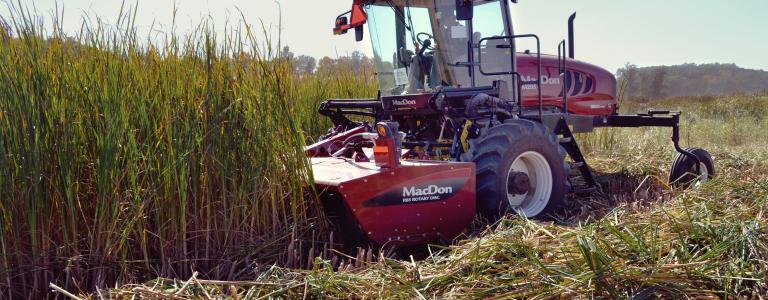Cattail for Clean Community Waterways: Turning urban plants into compost and bioenergy
IISD is working with the City of Winnipeg to improve urban environmental management and water quality, as well as to enable bioenergy development and production of compost, using innovative value chains from plant materials from routine city ditch and prairie grass maintenance.
IISD is working with the City of Winnipeg to improve urban environmental management and water quality, as well as to enable bioenergy development and production of compost and use in through innovative value chains from plant materials from routine city ditch and prairie grass maintenance.
An impetus for this comes from a need to improve and enhance water quality in urban areas and in downstream Lake Winnipeg. The project began in 2013 with the harvesting of cattail (Typha spp.) and prairie grasses at numerous sites within the City of Winnipeg. The harvested plant materials were then compressed into biofuel pellets that were burned for heat in a City of Winnipeg pellet stove, located at the Living Prairie Museum. An additional component in 2015–2016 involves the addition of cattail, harvested from urban ditches and prairie sites, into the City’s large-scale composting facility.
Latest
You might also be interested in
Fish Forward: Protecting Manitoba's fishery way of life
Join us in protecting Manitoba's fishery way of life.
Scientists from Two Continents Working Together to Improve the Health of the African Great Lakes
World-class scientists and researchers from across North America and Africa are putting their heads together to tackle some of the most pressing issues facing the African Great Lakes today.
AquaHacking Lake Winnipeg
We are challenging young innovators to team up and develop new and innovative solutions to tackle urgent freshwater issues.
Sustainable Food Systems in Canada
In 2021, a team of IISD experts completed an internal exercise that sought to map out a path for sustainable food systems in Canada.


